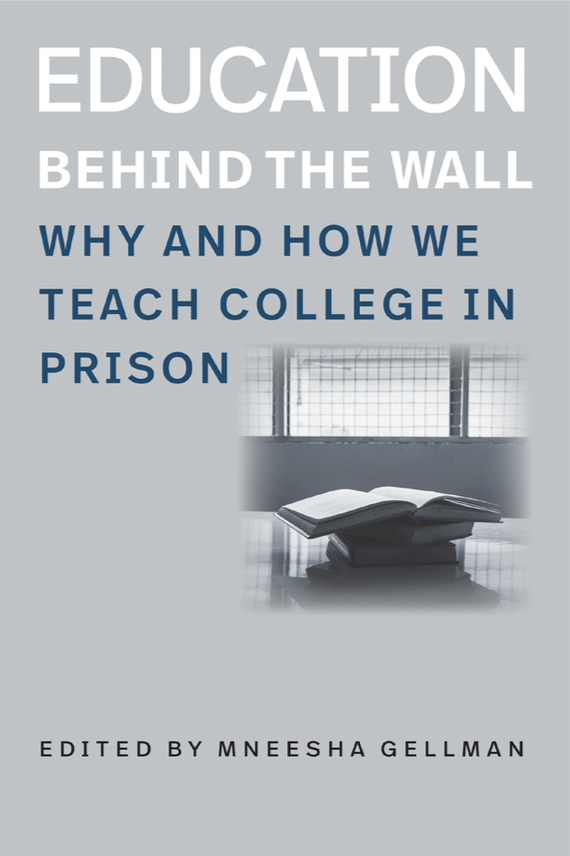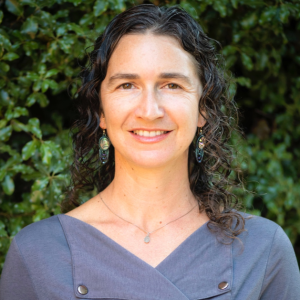Mneesha Gellman's research interests include comparative democratization, cultural resilience, memory and violence politics, and education policy in the Global South and the United States.
Gellman's third monograph, Misrepresentation and Silence in United States History Textbooks: The Politics of Historical Oblivion, available via open access, investigates how representation of Native Americans and Mexican-origin immigrants takes place in high school history textbooks.
Gellman's second monograph, Indigenous Language Politics in the Schoolroom: Cultural Survival in Mexico and the United States, looks at how heritage language learning operates in high schools as a tool for young people to resist culturecide—the intentional killing of culture. She uses collaborative methodology to work with Indigenous community stakeholders in far Northern California and southern Mexico to document, via interviews, focus groups, surveys, and observations, the impact of culturally conscious curricula in formal education. The book addresses identity formation processes for students enrolled in Yurok and Zapotec language classes in order to assess how language politics impacts student experiences of civic, cultural, and political participation.
Gellman's first monograph, Democratization and Memories of Violence: Ethnic Minority Social Movements in Mexico, Turkey, and El Salvador (Routledge 2017) examines how some communities use memories of violence in mobilizations for cultural rights, particularly the right to mother tongue or heritage tongue education. She argues that violence-affected communities use memory-based narratives in order to shame states into cooperating with claims for cultural rights protections, and she shows that shaming and claiming is a social movement tactic that binds historic violence to contemporary citizenship. Gellman has published widely on issues of human rights, democratization, education, and methodology in journals such as PS: Political Science and Politics, the British Journal of Sociology of Education, Latin American and Caribbean Ethnic Studies, International Journal of Critical Indigenous Studies, and Democratization.
Gellman is also the founder and Director of the Emerson Prison Initiative (EPI), which makes college available to incarcerated students at Massachusetts Correctional Institution (MCI) at Concord, a men's medium security prison. Gellman works with the Massachusetts Department of Correction, Emerson College, and other partners to bring an Emerson College Bachelor of Arts in Media, Literature, and Culture to incarcerated students. She is the editor of Education Behind the Wall: Why and How We Teach in Prison (Brandeis University Press 2022) and co-editor of Unlocking Potential: Education in Prison Around the World (Brandeis University Press 2024, forthcoming).
Gellman serves as an expert witness for asylum hearings in US immigration courts regarding country conditions and violence in El Salvador and Mexico. She is the past President of the Human Rights Section of the American Political Science Association (2022-2023) and will serve as Section President in 2023-24. Gellman is a former US Fulbright Scholar in Mexico, a former Rotary World Peace Fellow, and was the Senior Fellow at the Leibniz Institute for Educational Media in Braunschweig, Germany in 2022. Prior to joining the faculty at Emerson College, Gellman was a Postdoctoral Fellow at the Centre for Global Cooperation Research, Käte Hamburger Kolleg, University of Duisburg-Essen, in Duisburg, Germany.
Gellman holds a PhD in political science from Northwestern University, an MA in international studies/peace and conflict resolution from the University of Queensland, Australia, and a BA in political studies from Bard College. She has lived, worked, and studied on six continents, and may skip Antarctica in this lifetime.
At Emerson, Gellman's courses are part of the following minors: Political Science, Global and Postcolonial Studies, Peace and Social Justice, and Latin American and Latinx Studies.
She teaches the following courses:
- PL 222 Human Rights
- PL 223 The United States and Latin America
- PL 322 Truth, Justice, and Reconciliation
- PL 310 Collective Action and Identity Politics
(Photo credit: ©KHK/GCR21)

Education
M.A., University of Queensland
Ph.D., Northwestern University
Areas of Expertise
- Human Rights
- Intercultural Studies
- International Politics
- Latin American Politics
- Political Science
- Post-Conflict Reconstruction
- Postcolonial Studies
- Research Methodology
Publications
Unlocking Learning: International Perspectives on Education in Prison
2024Available at: https://brandeisuniversitypress.com/title/unlocking-learning-international-perspectives-on-education-in-prison/
Misrepresentation and Silence in United States History Textbooks: The Politics of Historical Oblivion
2024Available at: https://link.springer.com/book/10.1007/978-3-031-50353-5
Indigenous Language Politics in the Schoolroom: Cultural Survival in Mexico and the United States
2023Available at: https://www.pennpress.org/9780812254044/indigenous-language-politics-in-the-schoolroom/
University of Pennsylvania Press. 2022.
Speaking Up: The Politics of School Climate in the Trump Era and Afterward
2023Education Behind the Wall: How and Why We Teach College in Prison.
2022"Collaboration as Decolonization?"
2022"El Salvador’s Democracy in Crisis"
2022"Unsettling Settler Colonialism in Words and Land: A Case Study of far Northern California."
2022Available at: https://ijcis.qut.edu.au/article/view/2322/1223
The International Journal of Critical Indigenous Studies, 15(1), 22-40.
"Balancing Expectations for Research Transparency: Institutional Review Boards, Funders, and Journals"
2022Book chapter in Strategies for Navigating Graduate School and Beyond. Eds. Kevin G. Lorentz II, Daniel J. Mallinson, Julia Marin Hellwege, Davin Phoenix, J. Cherie Strachan. American Political Science Association, 110-117.
“No nos importaba a nadie”: navegando en la búsqueda del éxito académico en Oaxaca, México
2021Available at: https://polis.ulagos.cl/index.php/polis/article/view/1588/2822
Polis: Revista Latinoamericana. 20(59), 59-78.
“Collaborative Methodology with Indigenous Communities: A Framework for Addressing Power Inequalities.”
2021PS: Political Science and Politics. 54(3), 535-538.
“Higher Education Access and Parity: The Emerson Prison Initiative's Bachelor of Arts Program.”
2020Book chapter in Higher Education Accessibility Behind and Beyond Prison Walls. Eds. Dani McMay, V. & Rebekah Kimble, D. PA, USA: IGI Global, 47-66.
"Mother Tongue Won’t Help You Eat: Language Politics in Sierra Leone"
2020“The right to learn our (m)other tongues: indigenous languages and neoliberal citizenship in El Salvador and Mexico”
2019“Visible yet Invisible: Indigenous Citizens and History in El Salvador and Guatemala”
2019Lead co-author, with Michelle Bellino.
Democratization and Memories of Violence: Ethnic Minority Social Movements in Mexico, Turkey, and El Salvador
2017“Only Looking Forward: The Absence of National History in Sierra Leone”
2016“Teaching Silence in the Schoolroom: Whither National History in Sierra Leone and El Salvador?”
2015Global & Civic Engagement
Emerson Prison Initiative
2016Mneesha Gellman is the founder and Director of the Emerson Prison Initiative, which offers a BA program in Media, Literature, and Culture for incarcerated students at Massachusetts Correctional Institute at Concord, a men's medium security prison: epi.emerson.edu.
Awards & Honors
Senior Fellow
2022Leibniz Institute for Educational Media, Germany
Fulbright U.S. García Robles Scholar, Mexico
2020Six-month fellowship, Culture Kids Project
Sociological Initiatives Foundation
2019Two-year grant for Culture Kids: Cultural Competency and Language Politics project
Spirit of Emerson Award
2019For civic engagement through Emerson Prison Initiative, Emerson College
2018 Alma Ostrom and Leah Hopkins Awan Civic Education Fund
2018Centennial Center for Political Science and Public Affairs, American Political Science Association
Norma and Irma Mann Stearns Distinguished Faculty Award
2017Emerson College, Language Politics Project
